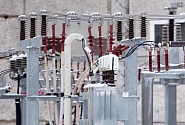
On Thursday, 14 July, the Saeima supported in the second and final reading urgent amendments to the laws aimed at promoting public involvement in the production of electricity from renewable energy sources (RES) and establishing the principles of the energy community activity.
Krišjānis Feldmans, Chair of the Economic, Agricultural, Environmental and Regional Policy Committee, which is responsible for advancing the Draft Law, had previously stated: “We are lacking in the electricity production area, and this must be remedied by any means possible. Not only must we think about short-term solutions for the upcoming heating season, but also about medium-term solutions to increase our electricity production capacity.” The Chair of the Committee highlighted that Latvia does not currently have a special framework for energy communities, but they may play a significant social and economic role in increasing self-consumption of produced electricity.
Amendments to the Energy Law stipulate that any society or association, cooperative society, partnership, capital enterprise or other incorporated company, whose primary aim of activity is production of energy mainly from RES and other types of renewable energy for self-consumption, may become an energy community.
An energy community status may be obtained upon registering in the Energy Community Register. The State Construction Control Bureau will be responsible for the creation, administration, and maintenance of the Register.
The Law previously stipulated a net-energy accounting system framework that established a procedure for distribution system operators making an offset for the surplus electricity produced from RES and consumed and added to the network for user self-consumption. The surplus is included in the next payment period for the net year. It may be consumed at the same system connection (structure) where it was produced. The net accounting system is currently only available to households.
Amendments to the Electricity Market Law, however, also envisage an electricity net payment system. Households as well as self-consumers of electricity produced from RES that are legal entities, will be able to join the net payment system. Households will be granted a one-time right to switch from the net accounting system to the net payment system.
The net payment system will account for the amount of RES-generated energy production and consumption, as well as determine the value of the electricity. Surplus energy will be calculated in monetary value and included in the next payment period. The amendments also stipulate that, under the net payment system, the energy produced at one user’s structure can be used in other structures of the same user.
The rules for the functioning of the net payment system will be developed by the Cabinet of Ministers by 30 September 2022.
The amendments also provide an opportunity to share electricity, namely, members of energy communities and active users will be able to share the produced energy with other members of the energy community or active users within the same building or the same real estate of other kind. Within the meaning of the Law, an active user is the end-user producing electricity from RES for their own needs.
Saeima Press Service







